SUMMARY
This is AI generated summarization, which may have errors. For context, always refer to the full article.
![[OPINION] Unwelcome inheritance: Healing from generational trauma](https://www.rappler.com/tachyon/2022/03/ispeak-1.jpg)
I was maybe 4 or 5. They picked me up together after preschool. I remember thinking it was odd because they never did that. It was always my Yaya. I lifted my arms to both my parents, wanting them to carry me. But no one did, my mother just held my hand as we walked out to the gate. They didn’t say anything but I could sense something was wrong. They weren’t angry or crying, but this time, there was a quiet resignation in their eyes.
They asked me to choose which parent I wanted to live with. I was crying, confused, but mostly heartbroken by the idea that I had to decide on not seeing one of them again, possibly forever. It was the first of their many attempts at marital separation.
The specifics of that memory are vague now. I can only remember them waiting for me to stop crying, the rusty gate of my school, and the unpaved road that we had to walk before riding a tricycle. But the rest, I can no longer recall.
Most of my childhood memories are of my parents arguing over something or ignoring each other for months after the fight. Everything is a chaotic blur, but there is one thing that lingered – the ache of it all.
As a child, I grew up thinking that chaos was common, and in fact an ideal. I thought crying, screaming, fighting, and throwing were typical in any marriage. I didn’t have any other relationships to use as a gauge for what was normal. It was embedded in my mind that it was these same dysfunctional patterns I should be looking for in my relationships, so I ended up confusing madness for passion and resentment for chemistry. I sabotaged most of my relationships thinking that it was healthy. I cheated, lied, and stole to find the familiar arousal of constant hurt. Chaos felt like home and home felt like love. To me, healthy relationships gave me anxiety; every time, it felt like it was better that I leave first than for them to leave me later on.
There were many aspects to my upbringing that up to now confuse me, certain rules that we had to follow that even in my adulthood I have not found the reasons for. My parents, for the most part, were deeply unhappy in their marriage but refused to separate because they thought staying together for the kids was better for us. In their shared misery, there was a lot of anger that was redirected to us, the children. I felt punished for their unhappiness. We didn’t have birthdays, gifts on Christmas, or any traditions that would anchor us to filial belongingness or help us understand our identity. My childhood was just years of cold existence, walking on eggshells, and basically just trying not to trigger their built-up resentment towards each other.
When someone goes through a lot of childhood trauma, people always tend to say that we mature faster because of it. They think that because we went through this and that, it’s the reason why we are so responsible now. But what usually happens is that the child is not more mature; we just had to skip over so many developmental steps to act mature because we had to. But as you go into adulthood, you realize that you have to go back and relearn all the things that you missed as a kid. And I think a big one of these things is learning how to process our emotions, because when you grow up in a household that doesn’t let you address your own emotions, you never learn how to do that, and so many in their 20s, 30s, and even beyond 40s are going back and relearning it. When these “mature kids” grow up, you get emotionally unregulated adults who seem high functioning. But really, we are mentally stuck at the age when we experienced our traumas, so we tend to regress into child-like behavior at times, throwing hissy fits when things do not go our way.
I used to think that being a parent was as simple as providing the basic needs: food, water, shelter, and education. But emotional support, love, stability, and security are also as crucial. I try to make sense of my own childhood issues. I can thoughtfully explain why my parents are the way they are – they were treated this way too, have their own traumatic history, and were probably struggling with their own problems. I can understand the context of generational trauma, but I know it doesn’t excuse it all.
Generational trauma is an unwelcome inheritance passed from generation to generation, as if it were genetic. It is something that not many of us understand or seek help to address. We simply think that this dysfunction is common in all households and we perpetuate it by continuing the patterns with our children. But many of us also want to break the cycle. Children with trauma deal with parenting the best way they can, either by never wanting to have kids out of fear, or simply making sure that our own children will never experience what we experienced. We put ourselves to higher standards because we do not want to raise kids who have to heal from the damage of their childhood.
I understand that many cannot seem to muster the right emotions to deal with their chaotic, abusive, or absent parents. But if you are angry, your anger is valid. We should honor all complex and uncomfortable feelings towards our parents – anger, guilt, grief, confusion, pity, and hurt. Our feelings and our ways of responding to hurt are okay. We deserved better.
I refuse to stay angry with my parents. They had their journey and this is mine now, and I must resolve my inner demons to avoid falling into the same traps. There comes a point where we must accept what our parents are capable of giving to us and what they aren’t. Feelings of love and compassion can be complicated when it is towards hurtful parents. But I hope that forgiveness doesn’t mean tolerance; it also means setting a boundary. Sometimes light and love are not enough. Sometimes we need to say no thank you or absolutely NO. We need these boundaries to protect us as we heal. There is grief in unmet needs. When our wishes become expectations, we are bound to turn them into disappointments.
Even with my genuine desire to end the toxic cycle, I cannot be sure that some of the pain won’t carry over to my kids. But I can only hope that my children will extend the same understanding, the same benefit of the doubt to me. This world is rooted in imperfections and these flaws are what keep us striving to create better versions of ourselves.
We are born with a need to be understood, loved, and accepted as we are. I hope that everybody who is healing from their childhood traumas will experience being seen, loved, and cared for in their relationships now in adulthood. – Rappler.com
Demsen Gomez-Largo, 31, is an OFW currently living in Osaka, Japan.
Add a comment
How does this make you feel?
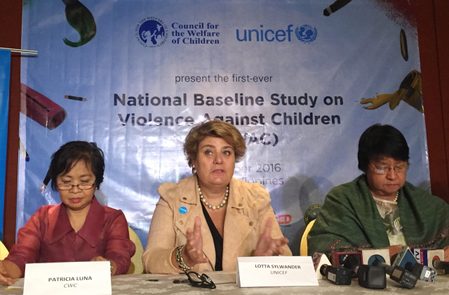
![[OPINION] Why I don’t believe divorce will destroy a family](https://www.rappler.com/tachyon/r3-assets/612F469A6EA84F6BAE882D2B94A4B421/img/9E9FE72BC5B943B695DE93395E946B97/imho-divorce-wont-destroy-family.jpg?fit=449%2C360)



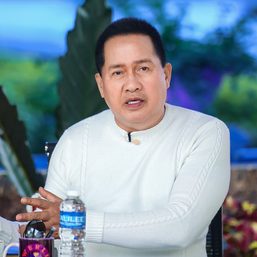
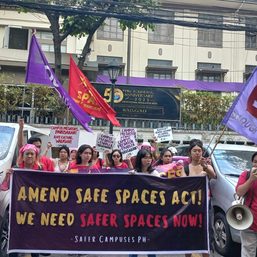
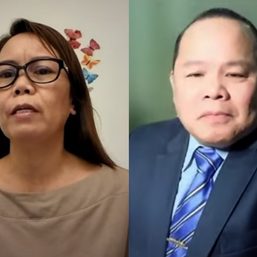


![[OPINION] Don’t be the ‘better person’ in an abusive relationship](https://www.rappler.com/tachyon/2022/09/tp-better-person-in-an-abusive-relationship.jpg?resize=257%2C257&crop=149px%2C0px%2C900px%2C900px)
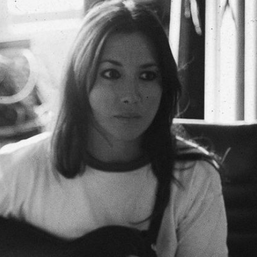



![[OPINION] LGBT, mental health, and why Pride March is there](https://www.rappler.com/tachyon/2024/06/lgbt-mental-health-june-11-2024.jpg?resize=257%2C257&crop_strategy=attention)
![[Free to disagree] Ending victimhood](https://www.rappler.com/tachyon/2024/05/TL-Ending-victimhood-May-20-2024.jpg?resize=257%2C257&crop_strategy=attention)

There are no comments yet. Add your comment to start the conversation.